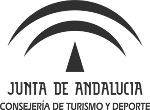Effect of differents hydration status on physical and cognitive‐motor performance of athletes submitted to exercise under low heat stress environment
Abstract
Objective
To verify the effect of differents hydration status on physical and cognitive‐motor performance of athletes submitted to exercise under low heat stress environment.
Method
Sixteen athletes, divided into two groups with eight athletes each (G2%: 34.1 ± 2.3 years; and G3%: 32.5 ± 2.2 years), performed two hours of cycling session and an maximum incremental test, accompanied by blood collections and calculation of the heat stress index Wet Bulb Globe Temperature Index. Before and after the protocol, the groups underwent an assessment of hydration status by percentage of body mass loss, color and specific gravity urinary; as well as assessments of physical performances (by time to exhaustion) and cognitive‐motor (by immediate memory tests, finger‐to‐nose and simple reaction time).
Results
The maximum recorded of the Wet Bulb Globe Temperature Index was ∼ 20 °C. There was a significant difference between percentage of body mass loss G3% (‐3.29 ± 0.23%) and G2% (‐1.87 ± 0.12%) (p < 0.001), and an increased urinay gravity, after cycling in both groups. There was no significant difference in urinary coloration between the groups. Under these conditions, there were no significant differences in the blood parameters, time to exhaustion and cognitive‐motor tests between groups.
Conclusion
It is suggested that dehydration with reduction of up to ∼ 3% of the body mass not impairs physical and cognitive‐motor performances.


